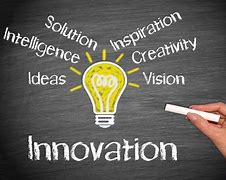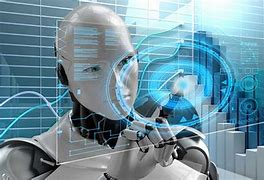
Technology is always evolving , it’s a whirlwind of new gadgets, apps, and trends that can leave you feeling lost and overwhelmed. So, how can you keep up with all the changes? What tech innovations are really worth your time and attention? Don’t worry, you’re not alone in this quest for tech clarity.
In this article , we’ll dive into the hottest tech trends , and uncover the innovations that are shaping the future of our world. We’ll explore advancements in artificial intelligence (AI) , augmented and virtual reality (AR & VR) , the metaverse , 5G technology & even the future of our digital identities. From the gadgets we use everyday , to the groundbreaking technologies revolutionizing entire industries, we’ll bring you the latest and greatest insights on the exciting world of tech innovation.
Prepare to be amazed and inspired by the possibilities, and learn how these innovations can impact your life in ways you may not even imagine. Are you ready? Let’s explore!
Related Post : Telegram gives explanation after their boss was arrested in France
Tech Innovations: What’s New and What You Need to Know
The world is rapidly changing, driven by a constant stream of new technology and digital advancements. From artificial intelligence to the Internet of Things, tech innovations are shaping our lives in profound ways. This article explores some of the hottest tech trends, their applications, and their impact on our future.
The Future is Now: Tech Innovations Shaping Our World
The pace of technological innovation is accelerating, with new breakthroughs emerging almost daily. These innovations are not just confined to the realm of science fiction; they are impacting our everyday lives, from the way we communicate and work to the way we consume information and interact with the world around us.
What are Tech Innovations?
Tech innovations refer to the development of new technologies, processes, and products that bring about significant changes in how we live, work, and interact with our environment. These innovations often arise from advancements in various fields, including computer science, artificial intelligence, biotechnology, and materials science.
Why Should We Care About Tech Innovations?
Understanding and engaging with tech innovations is crucial for several reasons:
- They shape our future: Tech innovations drive societal change, impacting everything from our economies and industries to our personal lives.
- They create opportunities: Innovations can lead to the creation of new jobs, industries, and solutions to global challenges.
- They improve our lives: Technology can enhance our well-being by addressing healthcare challenges, improving communication, and providing access to knowledge and information.
How Do Tech Innovations Impact Our Lives?
Tech innovations are woven into the fabric of our daily lives, often in ways we don’t even realize. Here are some examples:
- Communication: Social media platforms, instant messaging, and video conferencing have revolutionized how we communicate, connecting people across geographical boundaries.
- Transportation: Electric vehicles, ride-sharing services, and autonomous driving technologies are transforming how we travel.
- Healthcare: Telemedicine, personalized medicine, and advanced medical imaging techniques are improving patient outcomes and healthcare accessibility.
- Education: Online learning platforms, personalized learning tools, and virtual reality experiences are expanding educational opportunities.
Hottest Tech Trends You Should Know About
Here are some of the most significant tech trends that are shaping our world:
Artificial Intelligence (AI)
What is AI and How Does It Work?
AI refers to the development of computer systems that can perform tasks that typically require human intelligence, such as learning, problem-solving, and decision-making. AI systems are trained on vast datasets, enabling them to determine patterns, make predictions, and automate complex processes.
Real-World Applications of AI
AI is being applied across various industries, including:
- Customer service: AI-powered chatbots offer instant support and personalized interactions.
- Finance: AI algorithms can analyze industry data to determine investment opportunities and manage risk.
- Healthcare: AI is used in medical diagnostics, drug discovery, and personalized treatment plans.
- Manufacturing: AI-powered robots can automate tasks, improve efficiency, and enhance safety.
AI in Everyday Life
AI is increasingly integrated into our daily lives, from:
- Voice assistants: Siri, Alexa, and Google Assistant use AI to understand voice commands and offer information.
- Personalized recommendations: AI algorithms power recommendations on streaming services, e-commerce platforms, and social media.
- Facial recognition: AI-based facial recognition technology is used for security purposes and unlocking smartphones.
Virtual and Augmented Reality (VR/AR)
What are VR and AR, and What’s the Difference?
- Virtual reality (VR): VR immerses users in a computer-generated environment, creating a sense of presence and interaction within the virtual world.
- Augmented reality (AR): AR overlays digital information onto the real world, enhancing our perception of reality through a smartphone or other device.
VR/AR Applications Beyond Gaming
Beyond entertainment, VR and AR have a wide scope of applications, including:
- Training and education: VR simulations can offer realistic training environments for various professions, such as surgery, aviation, and military operations.
- Retail and industrying: AR can enhance shopping experiences by allowing customers to virtually try on clothes or see furniture in their homes.
- Healthcare: VR can be used for pain management, physical therapy, and mental health treatments.
- Architecture and design: VR and AR allow architects and designers to visualize and interact with 3D models before construction.
The Future of VR/AR in Various Industries
VR and AR are poised to revolutionize various industries in the coming years, offering immersive and interactive experiences that were earlier unimaginable.
The Internet of Things (IoT)
What is the IoT, and How Does It Work?
The IoT refers to a network of interconnected devices, vehicles, and other objects that can collect and exchange data, often through sensors and the internet. This interconnectivity enables communication and automation between physical objects, creating a seamless flow of information.
Smart Homes and Connected Devices
The IoT is transforming our homes, with smart devices that can:
- Control lighting, temperature, and appliances: Smart thermostats, smart lights, and smart appliances can be controlled remotely, optimizing energy consumption and convenience.
- Monitor security systems: Smart security cameras and door locks offer remote monitoring and enhance home safety.
- Facilitate entertainment: Smart TVs, streaming devices, and smart speakers offer a personalized entertainment experience.
IoT in Healthcare and Other Industries
The IoT is also impacting healthcare, manufacturing, transportation, and agriculture:
- Healthcare: Wearable health trackers monitor vital signs, providing valuable data for personalized healthcare.
- Manufacturing: IoT sensors can monitor equipment performance, maximize production processes, and predict maintenance needs.
- Transportation: Connected cars can communicate with each other and with infrastructure, enhancing safety and efficiency.
- Agriculture: IoT sensors can monitor soil conditions, crop health, and irrigation needs, optimizing agricultural practices.
Blockchain Technology
Understanding Blockchain Basics
Blockchain technology is a distributed ledger system that records transactions in a secure and transparent manner. Each block in the chain contains a record of multiple transactions, and once a block is added to the chain, it cannot be altered or deleted, ensuring immutability.
Cryptocurrency and Decentralized Finance
Blockchain technology is optimal known for its application in cryptocurrencies, such as Bitcoin and Ethereum. These digital currencies operate independently of central banks and rely on blockchain for secure transactions and record-keeping. Blockchain is also enabling decentralized finance (DeFi), a new financial system that allows for peer-to-peer lending, borrowing, and other financial services without the need for intermediaries.
Blockchain Applications Beyond Finance
Beyond finance, blockchain has applications in various fields, including:
- provide chain management: Blockchain can track the movement of goods and materials through a provide chain, ensuring transparency and authenticity.
- Healthcare: Blockchain can secure and manage patient records, preventing data breaches and enhancing privacy.
- Voting systems: Blockchain can offer secure and transparent electronic voting systems, preventing fraud and ensuring fair elections.
Sustainable Tech
Green Tech and Environmental Solutions
Sustainable technology focuses on developing solutions that minimize environmental impact and promote resource efficiency. Green tech innovations are crucial for addressing climate change and creating a more sustainable future.
Renewable Energy and Energy Efficiency
Sustainable tech encompasses innovations in renewable energy sources, such as solar, wind, and geothermal power, as well as technologies that improve energy efficiency in buildings, transportation, and industrial processes.
The Future of Sustainable Innovation
The future of sustainable innovation lies in developing technologies that are not only environmentally friendly but also economically viable and socially acceptable. This requires a shift in mindset and a collaborative approach to developing solutions that meet the needs of both the planet and its inhabitants.
The Impact of Tech Innovations on Society
Tech innovations have a profound impact on society, shaping our economies, workplaces, and social interactions.
Job Creation and Automation
The Rise of New Jobs and the Evolution of Work
While some jobs may be displaced by automation, tech innovations also create new opportunities in fields related to AI, data science, cybersecurity, and sustainable technology. The future of work will require adaptability, lifelong learning, and the development of skills in emerging technologies.
Adapting to a Changing Job industry
Individuals need to be prepared for a rapidly evolving job industry, developing skills that are in demand and being open to retraining and reskilling. This requires a focus on continuous learning and an understanding of the latest tech trends.
The function of Education and Reskilling
Education systems need to adapt to the changing job industry, providing students with the skills and knowledge they need to thrive in a tech-driven world. Reskilling programs for existing workers are also crucial for bridging the skills gap and ensuring a smooth transition to a future of work shaped by technology.
Ethical Considerations and Tech Regulation
Privacy Concerns and Data Security
As technology becomes more integrated into our lives, privacy concerns and data security become increasingly crucial. Protecting personal information, ensuring responsible data collection and application, and empowering individuals to control their digital footprint are essential for ethical tech development.
AI Bias and Fairness
AI systems are trained on large datasets, and if those datasets contain biases, these biases can be amplified and perpetuate social inequalities. It’s crucial to address AI bias, ensuring that algorithms are fair and do not discriminate against individuals or groups.
The Need for Responsible Tech Development
Developing technology responsibly requires a balance between innovation and ethical considerations. Companies, governments, and individuals need to work together to establish ethical instructions and regulations that ensure technology benefits society as a whole.
The Future of Tech and Its Implications
Predicting Future Innovations
Predicting the future of tech is challenging, but some trends suggest what the future might hold:
- Convergence of technologies: We can expect to see a convergence of technologies, such as AI, VR/AR, and the IoT, creating new possibilities and applications.
- Advancements in biotechnology: Biotechnology innovations are likely to revolutionize healthcare, agriculture, and other industries.
- Greater focus on sustainability: Technological solutions for climate change and environmental sustainability are likely to become more prominent.
Preparing for a World Shaped by Tech
Preparing for a future shaped by tech requires:
- Embracing lifelong learning: Continuous learning is essential for adapting to changing technology and keeping up with new developments.
- Developing critical thinking skills: Being able to analyze information and make informed decisions is crucial in a world saturated with data.
- Cultivating adaptability and resilience: The future will be characterized by rapid change, requiring individuals and organizations to be flexible and adaptable.
The function of Human Ingenuity and Adaptation
While technology is a powerful force, human ingenuity and adaptation remain crucial. Our ability to solve problems, create new solutions, and collaborate with technology will be essential for navigating the future.
Staying Ahead of the Curve: How to Keep Up with Tech Innovations
Here are some ways to stay informed about the latest tech innovations:
- Follow Industry Leaders and Experts: Follow thought leaders and experts in various tech fields on social media, listen to podcasts, and read their articles and blogs.
- Attend Tech Conferences and Events: Attending tech conferences and events offers opportunities to learn about new technologies and network with professionals in the field.
- Subscribe to Technology News and Blogs: Stay updated on the latest developments by subscribing to technology news websites and blogs.
- Embrace a Culture of Continuous Learning: Develop a habit of continuous learning by reading books, taking online courses, and attending workshops.
Conclusion: Embracing the Future of Technology
Tech innovations are shaping our world at an unprecedented pace, bringing both opportunities and challenges. Staying informed about emerging technologies is crucial for individuals and businesses alike. By embracing innovation, we can unlock the potential of technology to create a better future for everyone. It’s a future that requires collaboration, responsible development, and a commitment to continuous learning. The journey ahead will be exciting, challenging, and ultimately transformative. Let’s embrace it and shape a future where technology empowers us to achieve greater heights.



